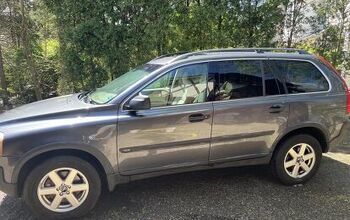Aston Martin Could Leave US Without Federal Crash Exemption Approval
Should you desire an Aston Martin in the near future, you may need to make your purchase sooner than later if the automaker fails to live up to the federal government’s newest expectations.
Bloomberg reports Aston Martin stores will likely suffer financial hardships should the DB9 and Vantage are no longer made for sale in the United States due to both vehicles’ failure to comply with new regulations regarding side-impact crashes. This would result in every dealership closing their doors barring an exemption for both vehicles, as explained by U.S. dealer advisory panel chairman James Walker in his petition to the National Highway Traffic Safety Administration:
The financial viability of Aston Martin dealers is very much in question. If dealers make the decision to shutter the franchise, a very likely outcome, the impact on employment is significant.
Aston Martin sent exemption requests last year for the DB9 through August of 2016, and the Vantage the following August. Next-gen models of both vehicles have been delayed due to financial issues.
Seattle-based writer, blogger, and photographer for many a publication. Born in Louisville. Raised in Kansas. Where I lay my head is home.
More by Cameron Aubernon


































Comments
Join the conversation
These cars comply with current regulations, so they are hardly frail flowers in the crash tests. An exemption for 2 years on such low volume cars doesn't seem unreasonable.
How long have these standards been mooted, and how long has it been since these vehicles have been refreshed? Seems to me that updating standards, short of some critical urgent safety issue, should be timed such that engineers have a reasonable amount of time to adapt to them. I have a suspicion that A-M has let their cars get a bit long in the tooth, and they really should be doing an update anyway.
Whew, so glad the Feds are forcing this company out of the US! Think of all the lives saved by keeping the thousands (or is it hundreds?) of these rickety vehicles off the road! Now I'm going for a ride on my motorcycle. With no helmet. 'Cause THAT'S perfectly legal here.
I have often wondered to what degree the varying standards are, in the end, mainly trade barriers to protect the local boys at both ends. If my failing memory serves, I think economists call it "rent seeking" - "I already own this patch brother and it's gonna cost you to get in".